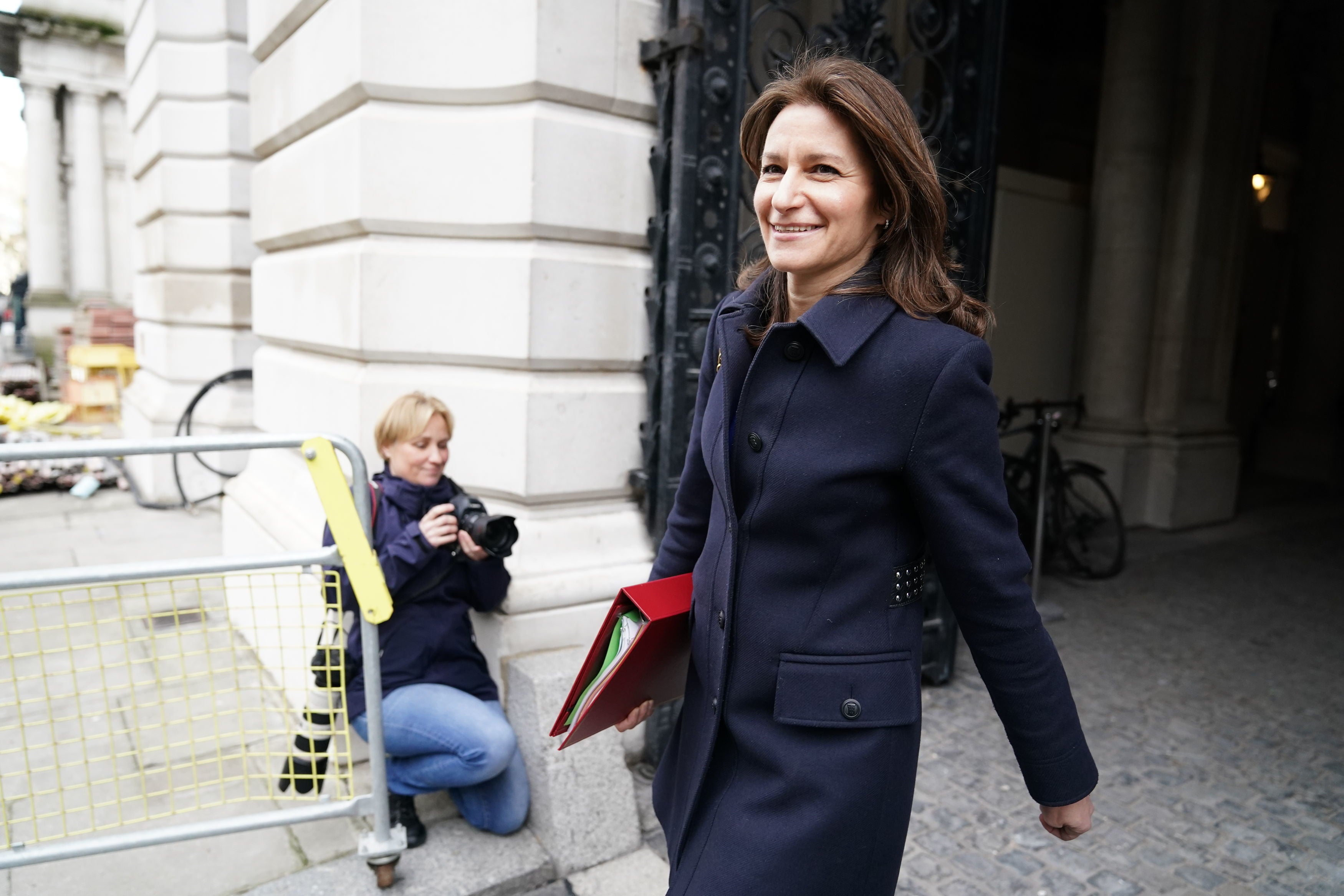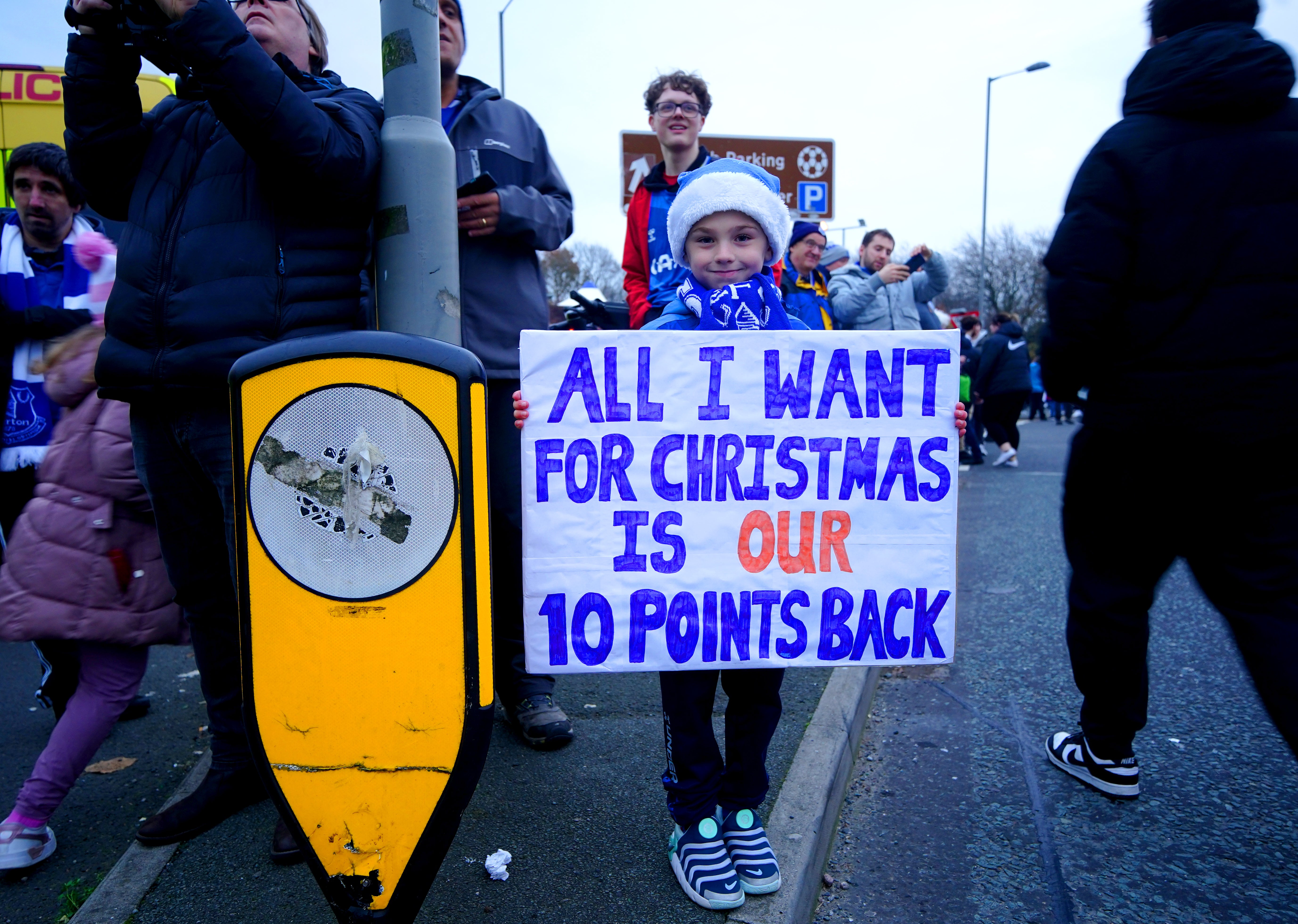Premier League pushes for diluted independent regulator powers amid fears of long delay
The secretary of state for Culture, Media and Sport is also involved in talks for football’s ‘new deal’ and the Premier League rescue package for the lower leagues

Your support helps us to tell the story
From reproductive rights to climate change to Big Tech, The Independent is on the ground when the story is developing. Whether it's investigating the financials of Elon Musk's pro-Trump PAC or producing our latest documentary, 'The A Word', which shines a light on the American women fighting for reproductive rights, we know how important it is to parse out the facts from the messaging.
At such a critical moment in US history, we need reporters on the ground. Your donation allows us to keep sending journalists to speak to both sides of the story.
The Independent is trusted by Americans across the entire political spectrum. And unlike many other quality news outlets, we choose not to lock Americans out of our reporting and analysis with paywalls. We believe quality journalism should be available to everyone, paid for by those who can afford it.
Your support makes all the difference.The independent regulator for football is in danger of being delayed until the end of the year, as the process enters a “critical” three weeks.
Government legislation was expected at the start of February after months of planning, but there have been no further developments since beyond talks. That means if the necessary bill is not published by 27 March there is unlikely to be any chance of it getting through until after an election. That would inevitably bring rewriting of the bill, too, which would likely push the implementation of the regulator until the end of the year.
The actual strength of the regulator has been one of the main sources of contention, with the Premier League lobbying the government to water it down after sounding a warning last year over risks to future investment in the game. That comes as Secretary of State for Culture, Media and Sport Lucy Frazer has been involved in connected talks over the “new deal” for football, which is what a Premier League rescue package for the lower leagues would look like. The agreement is virtually a prerequisite of the bill.
The entire issue stems from the pandemic and the subsequent Super League crisis, which led to a fan-led review calling for English football’s core financial issues and gaps to be resolved. Political energy on that was perceived to have waned since, which has led to a sense of stasis.
Frazer initially irritated clubs in the English Football League by effectively telling them to get a deal done - even though they do not currently know what any deal looks like - but a much improved engagement from the government in recent weeks has been recognised. Recent meetings have gone much better. The hope is that sufficient momentum can be generated over the crucial next fortnight.
The Premier League have another meeting on Monday to try and finalise their stance, and insist that the ambition is to get a deal over the line. There is an optimism that it has taken a turn through the last round of negotiations.
There are currently four primary issues that need to be agreed upon both among the Premier League clubs, and between the top division and the English Football League.
The most obvious is the amount of money that will be shared with lower divisions, which had been at £190m. The Premier League clubs believe an agreement between them on the figure is virtually there, but there are ongoing negotiations over how that sum would be put together and how the proportion would be organised.

This is connected to two of the other main issues over parachute payments and what the wage-to-revenue ratio would be going down the divisions. There is currently pushback among Championship clubs over how their ratio would be at 70 percent, but relegated clubs would be at 85 percent. While the latter is seen as a clear advantage in potentially allowing demoted teams to immediately regain promotion, the argument from within the Premier League is that it is impossible to reset budgets over a single summer, so allowance is needed.
This all comes as the top division evolves its profit and sustainability rules in accordance with Uefa, which has provided so many headlines this season. Clubs essentially want to be clear about what the financial constraints are and the system they will be operating under before agreeing to the terms of the new deal. A constant point in discussions has also been to maintain a competitive vitality within the Premier League. Other clubs have viewed that with a certain irony given Manchester City's dominance.
One of the most contentious terms of the deal, however, is related to the bill and regulator.
That is the time length, with the EFL preferring a two-year agreement and the Premier League wanting six.
The latter is being perceived as an attempt to further dilute any independent regulator, since it would make input futile on one of the primary issues it was brought in to solve: finance. The major terms would have been resolved, meaning the regulator doesn't have the same role once it's introduced.

Frazer has been clear that the regulator can’t change the deal under the current bill, but that may not be as important for lower-league clubs if the agreement is then to be renegotiated in two years.
The entire issue could have a significant electoral impact, as well as deciding the shape of English football for the next decade.
Many hinge seats in the forthcoming elections come in towns where one of the biggest social influences is the local EFL club. “There is a political opportunity there,” as one club executive put it.



Join our commenting forum
Join thought-provoking conversations, follow other Independent readers and see their replies
Comments